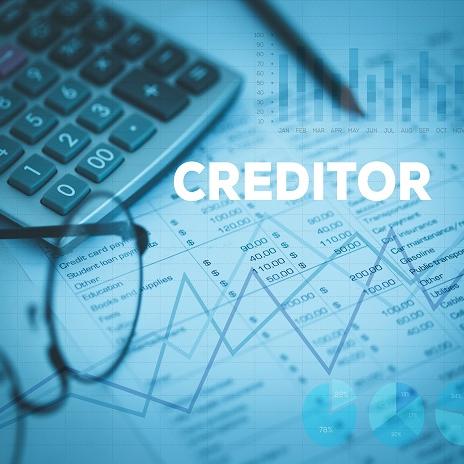A creditor to the business is an entity that is owed money by the business. The debt may be in the form of a loan, line of credit, or invoice for goods or services sold. Creditors are typically listed on a company’s balance sheet as liabilities.
A creditor is a person or organization to whom money is owed. In the business world, creditors are typically suppliers or lenders who have extended credit to a company. The money that a business owes to its creditors is known as Accounts Payable.
Accounts payable represents one of the most important liabilities of a business because it represents money that the company owes to others and must eventually pay back. Therefore, it is important for businesses to manage their accounts payable carefully and keep track of all money owed to creditors.
One way businesses can stay on top of their accounts payable is by using accounting software like QuickBooks, which allows businesses to track all vendor invoices in one place.
This can help businesses avoid missed payments and late fees, which can damage relationships with creditors.
Another way businesses can manage their accounts payable is by negotiating payment terms with creditors. Many creditors are willing to work with businesses on repayment schedules that fit the company’s cash flow needs.
By doing this, businesses can avoid defaulting on their obligations, which could lead to legal troubles and damaged relationships with creditors.
Table of Contents
WHAT IS A CREDITOR IN BUSINESS LAW NOT TO DO?
Who is an Example of a Creditor?
A creditor is an entity that extends credit to another entity. In the context of individual finance, a creditor may be a bank, credit card issuer, or other lending institution. An individual’s creditors are generally listed on their credit report.
Which is a Creditor?
A creditor is an entity that lends money or provides goods or services on credit. Creditors are typically owed payment by debtors, but may also be owed payments by guarantors or sureties. In the event of a debtor’s default, creditors may pursue collection through the legal system.
What Does Creditor Do in a Company?
A creditor is a person or company to whom money is owed. When a company owes money to creditors, it has debt. Creditors have a legal right to take action against the company if they are not paid.
This can include taking the company to court and getting an order for the company to pay them. If the company does not pay, creditors can also ask for the debt to be made public, which could damage the company’s reputation.
Is a Creditor a Liability to the Business?
A creditor is a person or entity to whom money is owed. A business may have many creditors, including suppliers, banks, and bondholders. Creditors are generally classified as either secured or unsecured.
Secured creditors have a legal claim on the assets of the business if it defaults on its debt obligations (i.e., they are “secured” by collateral). Unsecured creditors do not have this legal claim and are therefore at greater risk of not being repaid if the business becomes insolvent. While all creditors represent a financial obligation of the business, some may be more important than others depending on the type of debt and its terms.
For example, short-term creditors such as suppliers usually must be paid first because they provide essential goods or services that keep the business running; failure to pay them could quickly lead to a shutdown of operations. In contrast, long-term debt such as bonds typically has less stringent repayment terms, so bondholders may be willing to wait longer for their payments if necessary.

Credit: weisblattlaw.com
Creditors Meaning With Example
A creditor is a person or entity to whom money is owed. The debt may be in the form of a loan, credit card purchases, or other obligations. The term is also used more broadly to refer to anyone who has provided goods or services on credit.
For example, if you have a $1,000 outstanding balance on your credit card, your creditor is the credit card company. If you owe $10,000 on a personal loan from your bank, the bank is your creditor. And if you’ve purchased a car using an auto loan, the dealership or lender that provided the financing would be considered your creditor.
Creditors typically charge interest on the money they lend or extend as credit. That’s how they make money from lending money or providing credit to consumers and businesses. The amount of interest charged varies depending on the type of creditor and terms of the agreement between borrower and lender.
But it’s important to remember that creditors are in business to make money, so it’s in their best interest to keep borrowers indebted for as long as possible.
If you’re struggling to make payments on time or falling behind on your debts, it’s important to contact your creditors right away and explain your situation. Many creditors are willing to work with borrowers who are having financial difficulties and may offer options such as modified payment plans or deferment of payments.
Creditors Examples
Creditors are generally classified as either secured or unsecured. Secured creditors have a security interest in some specific property of the debtor, which gives them a preferential claim to that property in the event of default. Unsecured creditors do not have any such security interest, and their claims are paid out of the debtor’s general assets on a pro rata basis.
Common examples of secured creditors include lenders who hold a mortgage or other lien on real estate, auto lenders who hold a lien on a vehicle, and credit card companies that may have a lien on personal property purchased with their card. In each case, the creditor has a legal right to seize and sell the collateral if the debtor defaults on their obligations.
Unsecured creditors include most suppliers of goods and services, utility companies, medical providers, and many others.
While they do not have any specific collateral that they can seize in the event of non-payment, they can still pursue legal action against the debtor to recover what is owed. In many cases, unsecured creditors will work with debtors to set up payment plans that allow them to repay what is owed over time.
What is a Creditor in Accounting
A creditor is a person or organization to whom money is owed. In accounting, creditors are classified as either short-term or long-term. Short-term creditors are typically paid within one year, while long-term creditors are usually paid over a period of several years.
Accounts payable is the most common type of short-term debt and is used to pay for goods and services that have been received but not yet paid for. Notes payable is another type of short-term debt, which may be used to finance the purchase of equipment or other assets. Long-term debt includes bonds and loans that are typically repaid over a period of several years.
Conclusion
In business, a creditor is a person or entity to whom money is owed. The debt may be owed by an individual, corporation, or government. A creditor may also be referred to as a lender.

